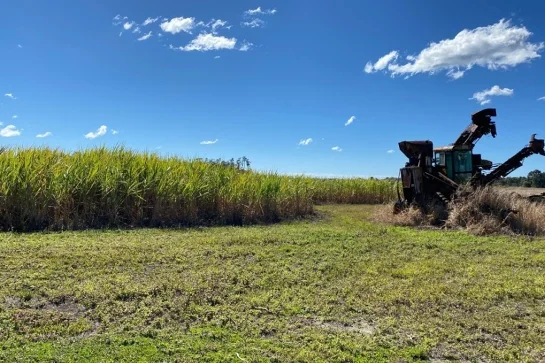The United Nations (UN) has declared 2026 the International Year of Rangelands and Pastoralists, reflecting the important role healthy rangelands play in creating a sustainable environment, economic growth and resilient livelihoods for communities across the world.
The UN General Assembly at its Plenary Meeting on 28 February 2022, adopted the resolution that was initiated and spearheaded by Mongolia, and supported by 60 Member States representing all regions of the world.
The International Year of Rangelands and Pastoralists aims to raise awareness and advocate for the value of healthy rangelands and sustainable pastoralism, as well as advocating for the need to further build the capacity of and increase responsible investment in the pastoral livestock sector. This includes sustainable land management practices, improved or restored ecosystems, and equitable access to markets, livestock health and breeding. The International Year of Rangelands and Pastoralists will be implemented by the Food and Agriculture Organization of the United Nations (FAO) as the lead agency.
Rangelands and pastoralism
Rangelands and pastoralism are linked to diverse ecosystems, cultures, identities, traditional knowledge and historical experience coexisting with nature. Rangelands support the livelihoods and food security of millions of people around the world and have many benefits, not only to herders, but also to other communities through biodiversity conservation, carbon sequestration and delivery of clean water. Pastoralists make the most of a variable environment by using strategic mobility seasonally.
However, droughts, floods, ecosystem degradation, animal diseases, pressure on land and increasingly erratic climate are compromising the economic productivity of rangelands and pastoralism, which risks exacerbating rural poverty due to the loss of pastoralists’ productive assets.
Productive rangelands and pastoralism have great potential to deliver on the Sustainable Development Goals (SDGs), and the International Year of Rangelands and Pastoralists represents an opportunity to raise international awareness on these issues of global concern.
Encouraging participation through an International Year
FAO together with its partners in government, civil society and the scientific community will develop a series of activities linked to the International Year of Rangelands and Pastoralists, with the aim to raise awareness around the initiative and the importance of the sustainable management of rangelands and pastoralism and its contribution to achieving sustainable development. FAO Members will be encouraged to build the capacity of and increase responsible investment in the pastoral livestock sector, including for sustainable land management practices also with the aim to reduce greenhouse gas emissions, increase adaptive capacity, and maintain and enhance biodiversity in rangelands.
FAO’s work with rangelands and pastoralists
FAO contributes to addressing some of these challenges by working on sustainable management of rangelands, governance, data and knowledge generation, and supporting pastoralists’ advocacy initiatives.
FAO develops and fosters the implementation of knowledge, tools and guidelines, including the Technical Guidelines for Improving Governance of Pastoral Lands, the Voluntary Guidelines for the Responsible Governance of Tenure and the Participatory Assessment of Land Degradation and Sustainable Land Management in Grassland and Pastoral Systems project. FAO’s Pastoralist Knowledge Hub serves both as a repository of technical knowledge on pastoralism and pastoral people’s livelihoods, and as a neutral forum for exchange and alliance building among pastoralists and stakeholders working on pastoralist issues.
To tackle animal diseases FAO promotes the prevention, control and eradication of Peste des Petits Ruminants, also known as sheep and goat plague, aiming to fully eradicate this highly contagious disease as was done for Rinderpest in 2011. Supporting a One Health approach FAO and partners look to boost countries veterinary and monitoring capacities.
Recently FAO published Making way to guide the development of legal and policy frameworks for securing mobility for various pastoral production systems and practices, facilitating a continuous stream of economic and social benefits for pastoralists, countries, and the environment. FAO supports intergovernmental mechanisms on securing tenure rights, including Economic Community of West African States (ECOWAS) and the African Union, related to cross border natural resources-sharing and animal health
coordination. Through its Action Against Desertification Initiative, FAO supports its Members in the sustainable management and restoration of their dryland forests and rangelands, including the Great Green Wall for the Sahara.
FAO has set up a working group on dryland forests and agro-sylvo-pastoral systems. FAO’s Globally Important Agricultural Heritage Systems recognises pastoral systems in the Republic of Kenya and the United Republic of Tanzania.







